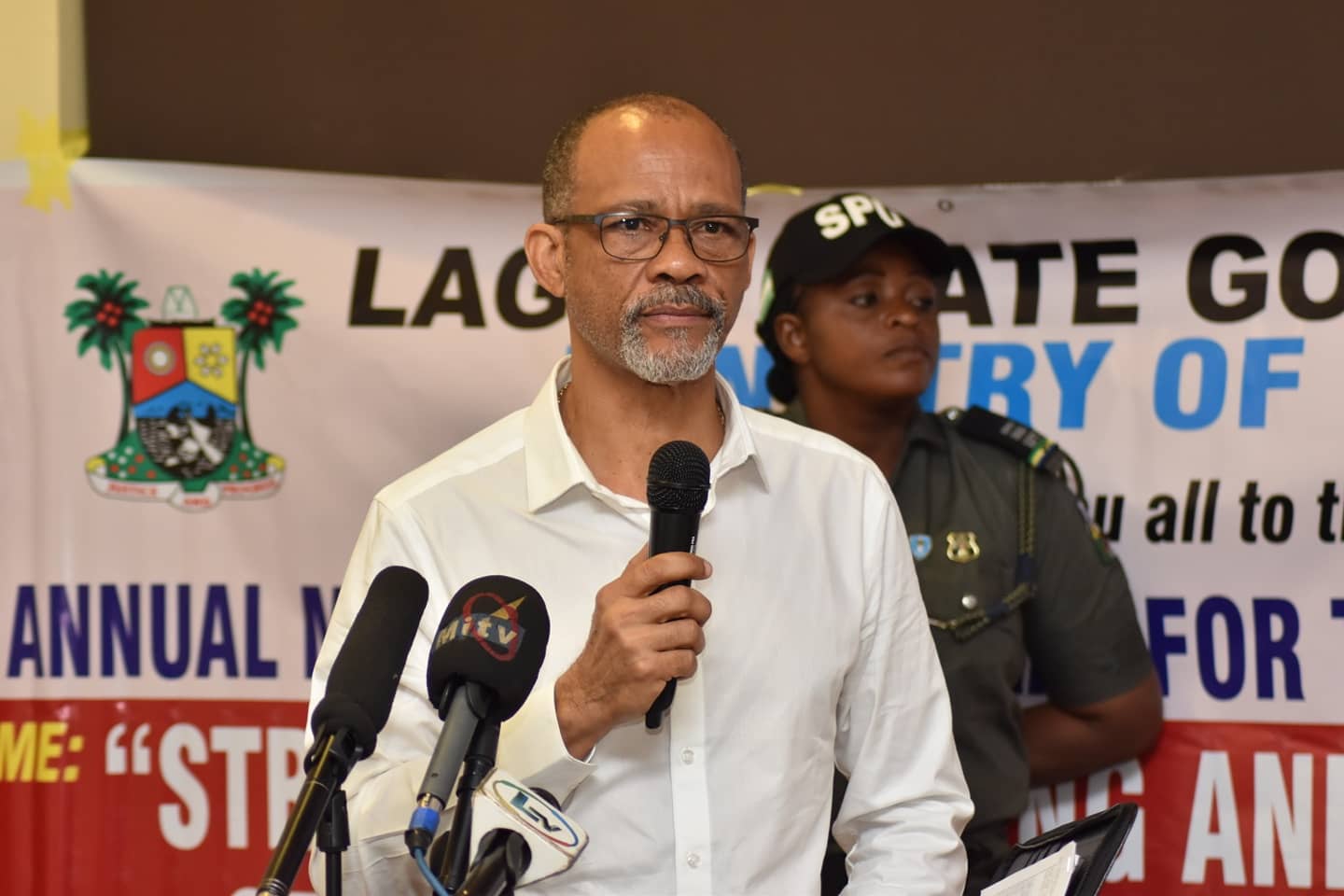The Lagos State Commissioner for Health, Prof. Akin Abayomi, has reported that 25 cases of severe gastroenteritis, confirmed to be caused by cholera, have been identified at Kirikiri Medium Security Prison.
This announcement contradicts a previous statement made by the Nigerian Correctional Service (NCoS) on June 26, 2024, asserting that custodial centres nationwide were free of cholera. NCoS spokesman Abubakar Umar had credited routine hygienic measures in the correctional centres for keeping cholera at bay.
In a statement released on Sunday by the Director of Public Affairs for the Lagos State Ministry of Health, Tunbosun Ogunbanwo, Prof. Abayomi confirmed the outbreak and noted that urgent medical and environmental measures had been successfully implemented.
Meanwhile, the Nigeria Centre for Disease Control and Prevention (NCDC) has recorded 118 suspected cholera cases in Katsina State. As of June 24, 2024, NCDC data showed 1,528 suspected cholera cases, 65 confirmed cases, and 53 deaths across 107 local government areas in 31 states, with a case fatality rate of 3.5 percent. The most affected states include Bayelsa, Zamfara, Abia, Cross River, Bauchi, Delta, Katsina, Imo, Nasarawa, and Lagos.
In response to the outbreak, President Bola Tinubu approved the establishment of a multi-sectoral cabinet committee on cholera control, headed by the Coordinating Minister of Health and Social Welfare, Prof. Ali Pate.
Prof. Abayomi assured that no new cholera-related deaths had been reported in the last 72 hours as the state intensifies countermeasures to curb transmission. He confirmed that low-grade community transmission is ongoing, but the number of new daily cases and deaths is decreasing.
Regarding the Kirikiri incident, Abayomi stated, “We supplied Kirikiri Medium Prison with intravenous fluids, infection prevention supplies, and other health consumables. Additionally, the World Health Organization donated 10,000 doses of pharmaceuticals to support the prison health facilities.”
He emphasized that immediate water and sanitation issues have been addressed and ongoing inspections of other correctional facilities are in progress. The source of the original outbreak was traced to unregulated street beverages and contaminated water supply. Samples taken from these beverages confirmed the presence of vibrio cholera bacteria, the causative agent of cholera.
Efforts are being made to locate and shut down the informal production units responsible for these contaminated beverages. “The directorate of environmental health is planning to seal any such unregulated manufacture and make arrests of those involved in the production or distribution of beverages without NAFDAC numbers,” Abayomi said.
Prof. Abayomi assured the public that there is no need to panic and expressed optimism that with continued collaboration and vigilance, the state is taking decisive actions to combat and control cholera.
In Katsina, the Director of Epidemiology at the Katsina State Primary Healthcare Development Agency, Dr. Kabir Suleiman, reported that 118 suspected cholera cases had tested negative. He confirmed that the state is prepared for any emergency, with rapid response teams trained in detection and management of such diseases.
The Kaduna State Primary Health Care Board also reported no current cases of cholera. The Incident Manager, Dr. Abdullahi Musa, affirmed the state’s preparedness and proactive measures to address any outbreak.
Contrary to reports, Kano State has not experienced any cholera cases. The Commissioner for Health, Dr. Abubakar Labaran, highlighted the state’s proactive measures and public awareness campaigns to safeguard against the outbreak.
The NCDC has raised concerns over improper waste disposal and open defecation, which endanger water quality and contribute to outbreaks of water-borne diseases like cholera. The Director-General, Dr. Jide Idris, urged Nigerians to adopt safe sanitation practices and called on state governments to enforce stricter waste management regulations.
In Ogun State, the Waste Management Authority has appealed to residents to containerize their waste to prevent environmental contamination and the spread of diseases. Managing Director Abayomi Hunye emphasized the importance of proper waste disposal in curbing cholera and other contagious diseases.

